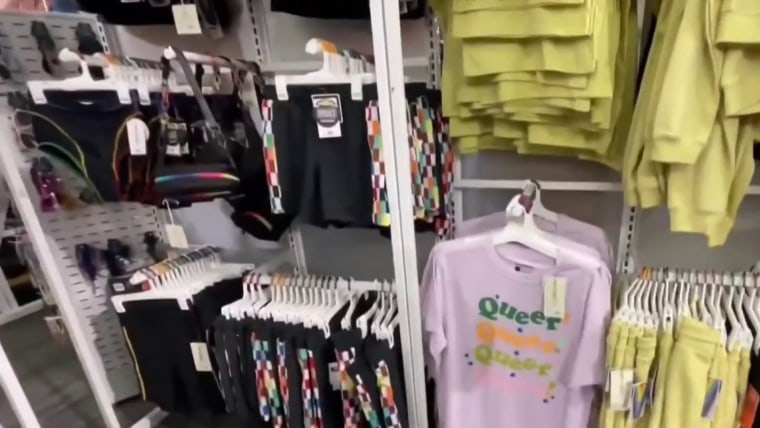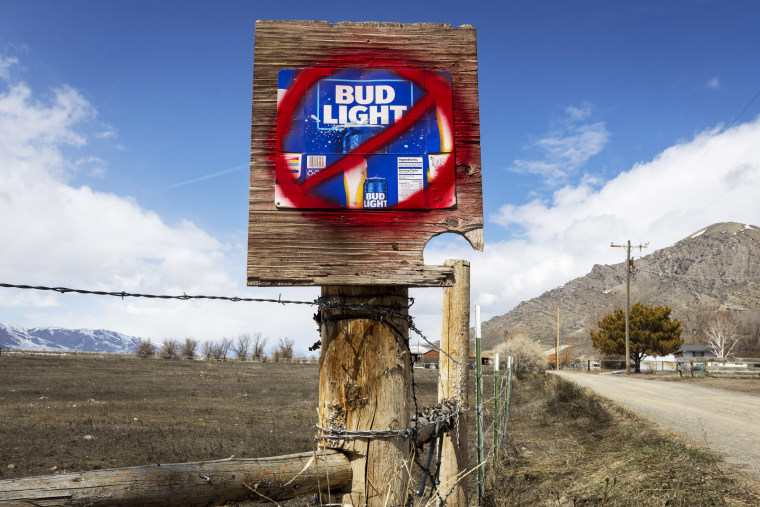How LGBTQ+ people can protect their mental health during a traumatizing Pride season
With hundreds of anti-LGBTQ+ bills filed over the past year, both at the federal level and in state legislatures across the country, it’s a difficult time for the queer community. Republican politicians, far-right online personalities, neo-Nazis, and white supremacists have launched vicious attacks against the community, especially drag queens and transgender people.
June is usually a celebration for the LGBTQ+ community, but this year many have found it challenging to enjoy Pride like in previous years. They’ve been traumatized by the nonstop vitriol and threats of violence.
So how can you take care of yourself this year? The onslaught of negativity can quickly take its toll, so LGBTQ Nation spoke with a therapist and psychologist to get tips on how to recognize your trauma, protect your mental health, and show yourself some compassion at the same time.
“These relentless attacks against LGBTQ folks, at minimum, leave us afraid, anxious, and insecure. When we leave our homes, are we safe? Will I be faced with attacks ranging from disgust to outright physical harm?” clinical psychologist Roxy Manning, Ph.D. pointed out. “Someone might call themselves an ally, but will they publicly intervene when horrendous comments are directed at me, or is their allyship restricted to privately commiserating with me and telling me that what happened was so wrong? We begin to doubt ourselves.”
“So many of us walk the world in this state of perpetual anxiety and uncertainty – am I safe, do I truly belong, am I truly welcome, am I appreciated and valued? And these attacks make it impossible for us to fully trust a ‘yes’ to any of those questions, no matter how often we are told otherwise. At our most elemental level, we know that it will only take another slur yelled as we walk down the street or another bullet ripping through our community to let us know how shaky that welcome truly is.”
The Human Rights Campaign recently declared a state of emergency for queer people in the United States, particularly in states politically dominated by Republicans. Pride festivals have been canceled due to threats of violence or legal ramifications. And social media has become an even more giant cesspool, if possible. For a community that already suffers disproportionately from depression and suicide risks, Talkspace therapist Cynthia Catchings, LCSW-S, warns that it is essential to be aware of your mental health risks.
“Fear of the unknown and knowing that there is an emergency can create stress and anxiety. That can result in other negative thoughts and actions, including panic attacks, depression, or PTSD,” she said. “Look out for negative emotions; drastic mood changes; fear, anxiety, or panic attacks; a lack of interest in things that you enjoyed doing before; irritability; not feeling like socializing or talking to others; crying spells, poor hygiene, lack of or excessive sleep; and changes in eating habits.”
“Staying informed but moderating the information intake is essential to avoid more severe mental health issues. You can take some time to observe and reflect on how you feel. It also helps to be open to listening to what those who care about you tell you. A person that loves you will share their concern. Being open to listening to them. Speaking with a mental health professional or joining a support group can help too.”
Dr. Manning agrees. “As we work on expanding our capacity for self-compassion, we can find support in not doing this alone. It can seem counter-intuitive. People used to tell me, ‘You just need to learn to accept yourself.’ But it’s hard to accept yourself when all around you, people are putting you down, making fun of you, and demonstrating that they think you have little value. We can more easily access self-compassion when we experience compassion, when we see reflected in other people’s behavior that we are worthy of care, consideration, and acceptance.”
“Other people can show us the path to self-compassion when it’s new to us, and can keep reminding us that this is possible. For a long time, when I judged myself harshly, I would remember the voice of a dear friend who always received me with total compassion. I couldn’t always find the words to be compassionate to myself, but recalling his words would be a needed jumpstart.”
But what if our emotions keep us from celebrating Pride? That’s okay, they say. Pride started as a protest against authorities abusing their power to persecute the LGBTQ+ community, after all. Give yourself time to process everything from an inside point-of-view instead of solely external, and see if that helps you feel better.
“Not wanting to celebrate is okay,” Catchings says. “Any feeling we are experiencing that makes us avoid participating during the celebrations has a valid reason. However, it is important to take some time to reflect on the reasons why you feel that way. Ask yourself if that attitude is creating more issues or if you will be more resentful in the future for not celebrating this year.”
Mindfulness activities, journaling, yoga, breathing exercises, practicing a hobby or sport, or participating in a support group can help to soothe your emotions. Still, Dr. Manning warns that some techniques may seem helpful at the time but aren’t.
“As a Black psychologist, so many people have shared messages of anti-compassion they’ve learned from their family, often with the best intentions. Instead of giving ourselves permission to feel, to self-empathize, we’re told just to get back out there, pretend,” she said. “For many of us, without the capacity for the healing effect of self-compassion, we seek strategies to distract ourselves or numb ourselves.”
“We use food, alcohol, drugs, and increasingly, the internet and social media. We want to feel cared for and nurtured, so we turn to meaningless sexual encounters. We rely on accessing and expressing anger and judgment at ourselves or others. We even have behaviors that seem prosocial but still serve to distract us from our feelings.”
“Many of us have some emotions we think it’s okay to experience, and others we demonize. I might allow myself to feel anger and rage but not allow myself to feel grief and despair. We think we have to ‘chin up’ and soldier on, be professional, don’t let them see it hurts,” Dr. Manning added. “We can welcome and hold all our reactions and emotions with compassion.”
“One way we can access that compassion for our reactions is to recognize that each emotion is fueled by an underlying need, something that is deeply important to us. If we feel anger, it might be fueled by our deep longing for justice, for relief from pain. We can even feel compassion for our numbness – our inability to feel may be our body’s best strategy to relieve the intense pain.”
“Remember that you are the change that you want to see in the world, and not celebrating or participating in some way may sabotage progress and your own happiness,” Catchings pointed out. “If you feel like it after reflecting on your reasons not to celebrate, pick up those colors and wear them proudly wherever you go!”


